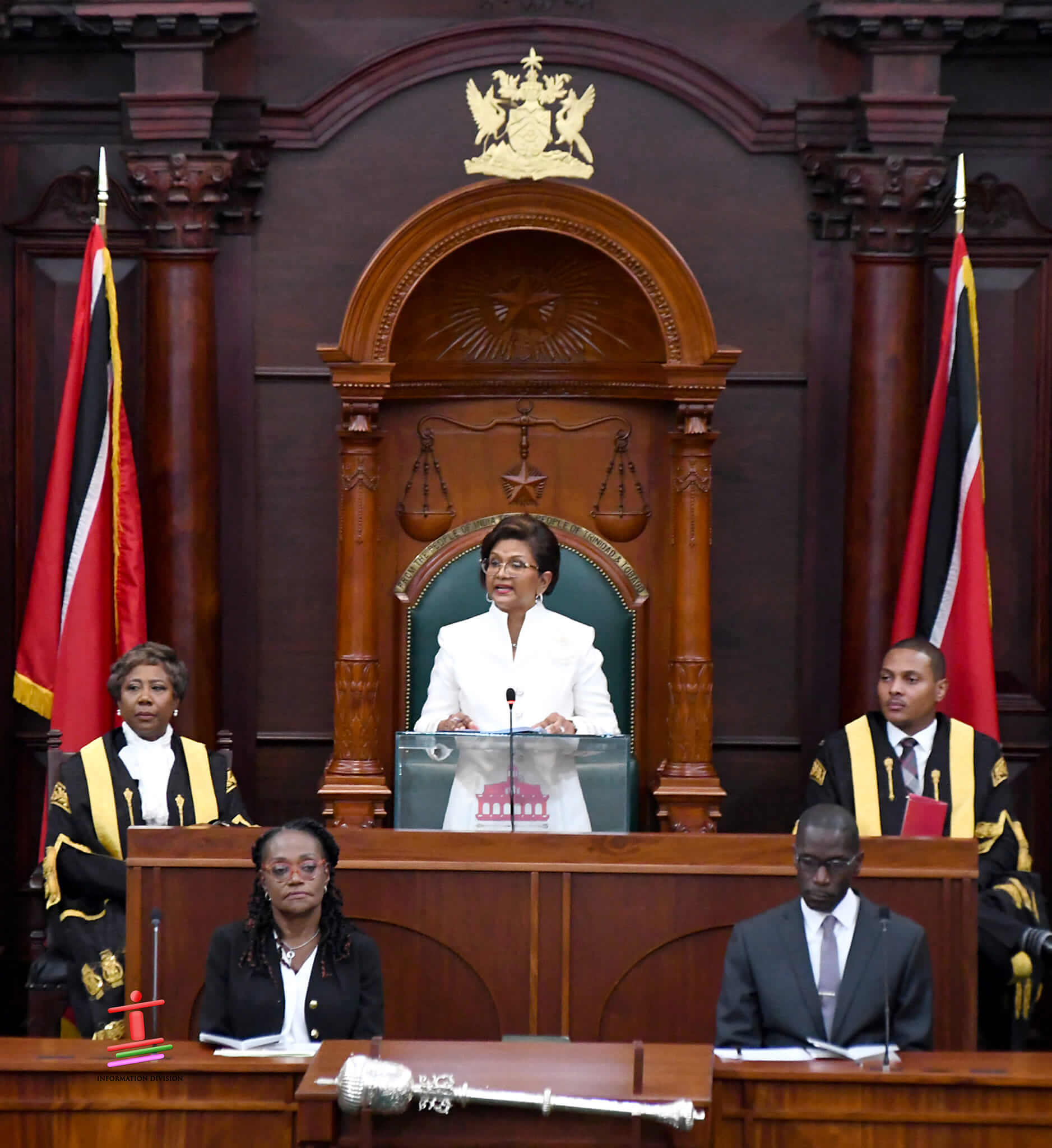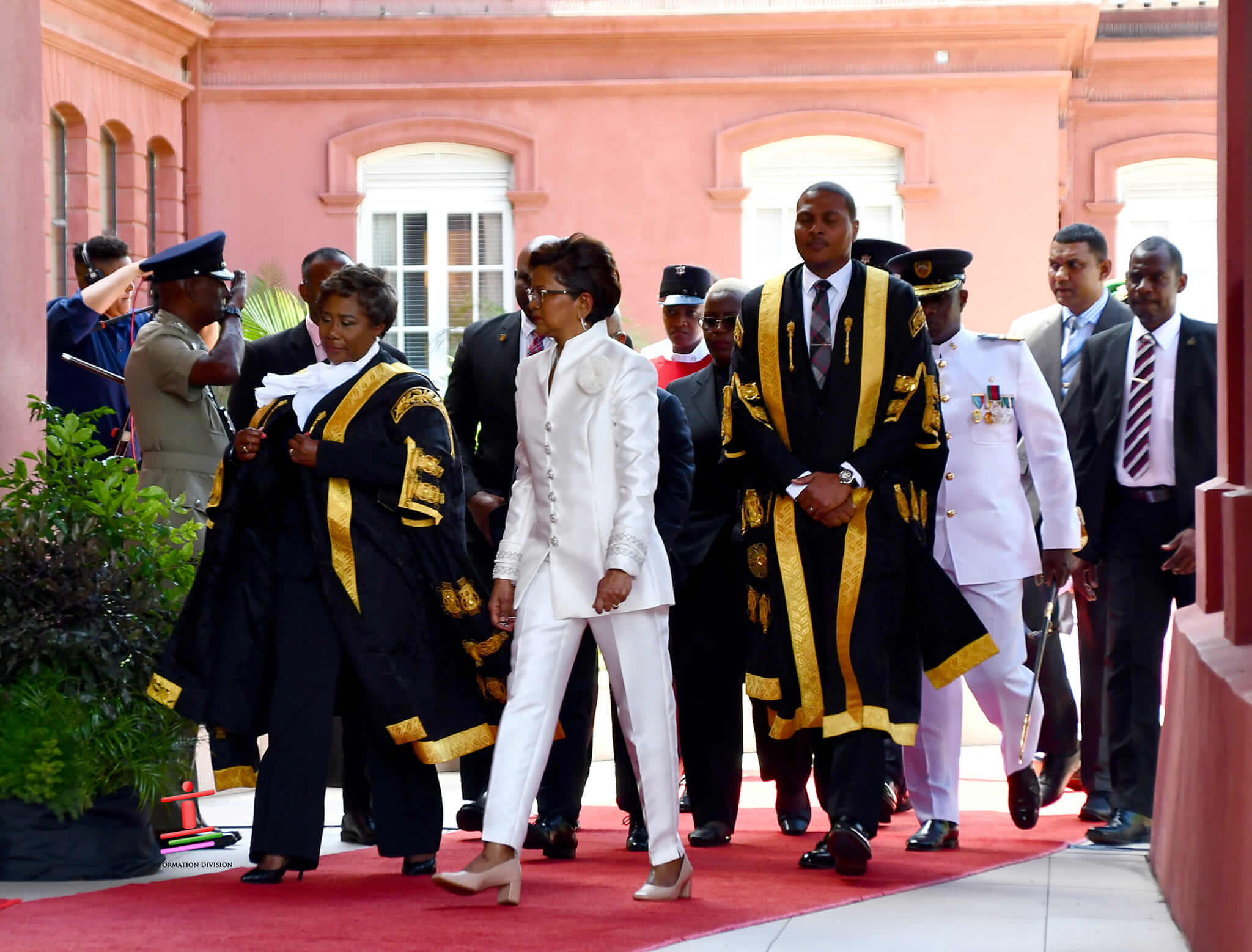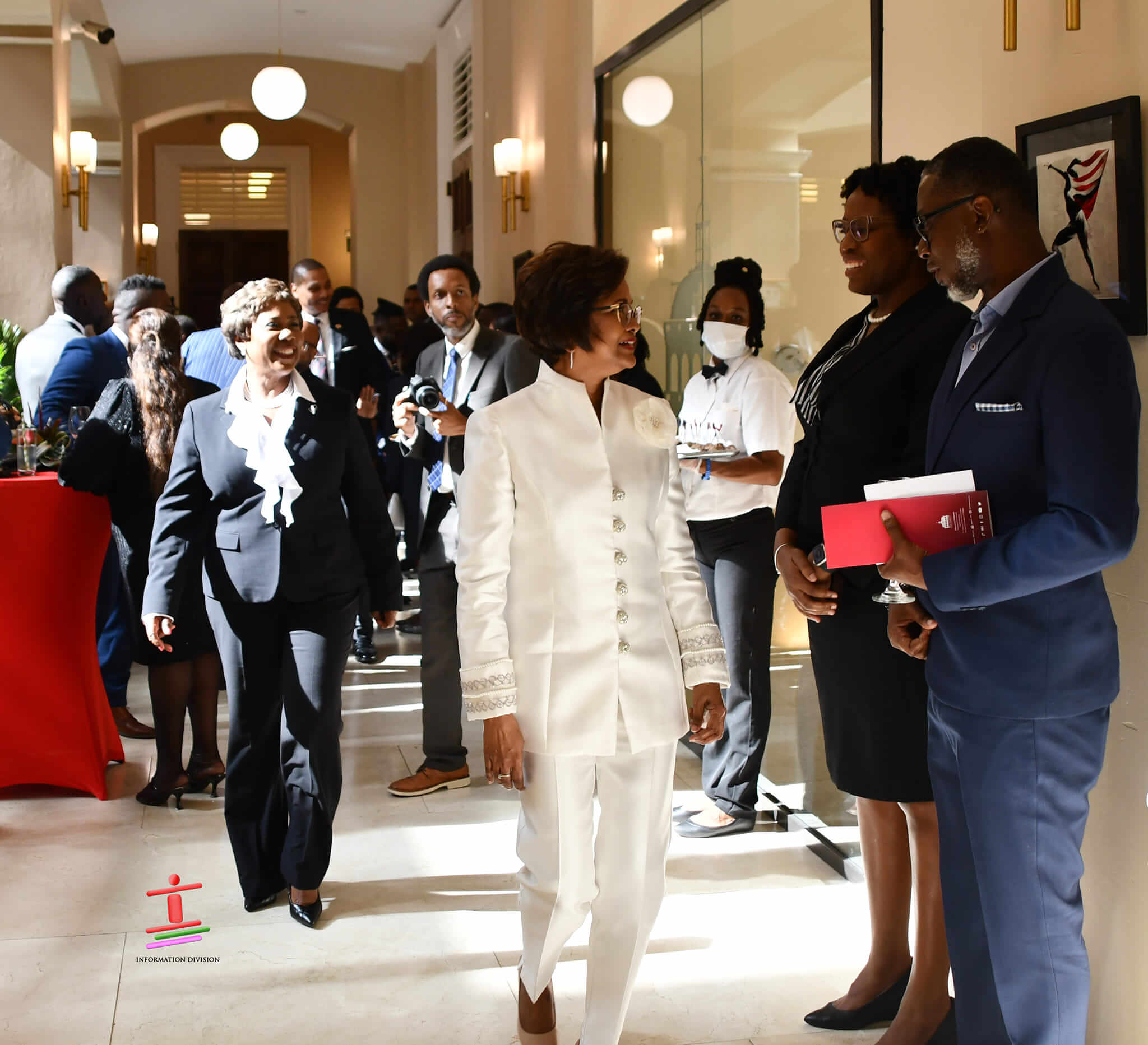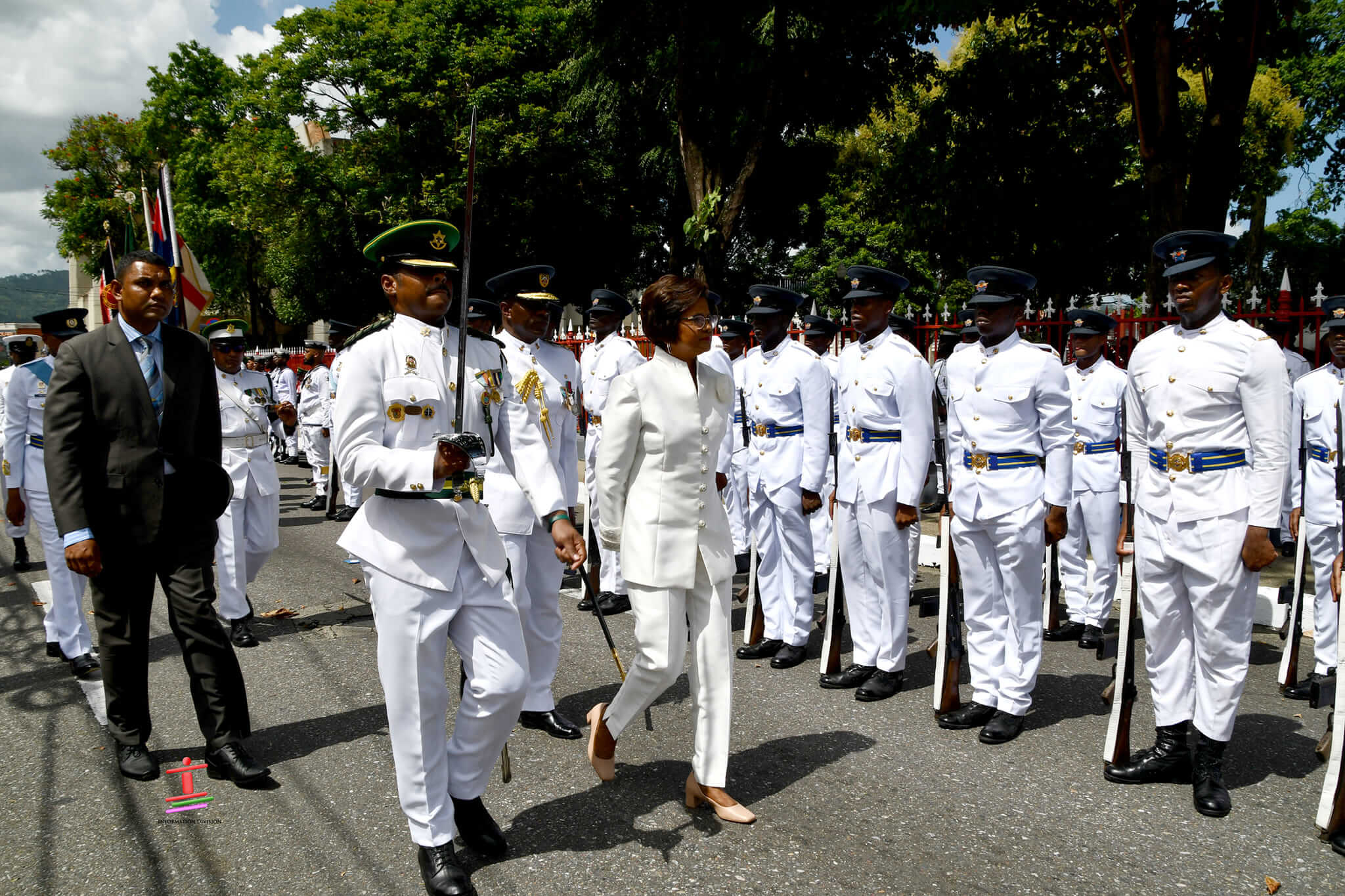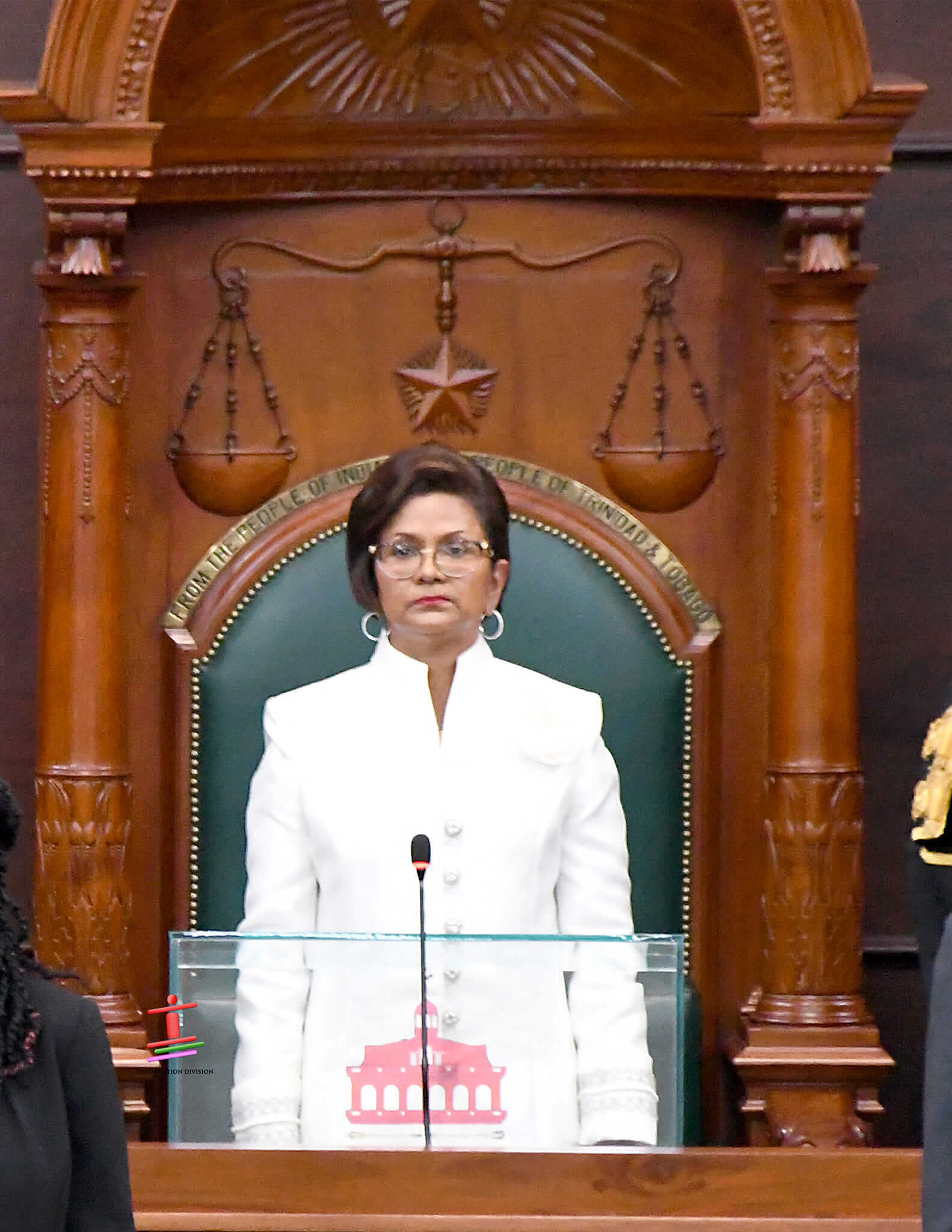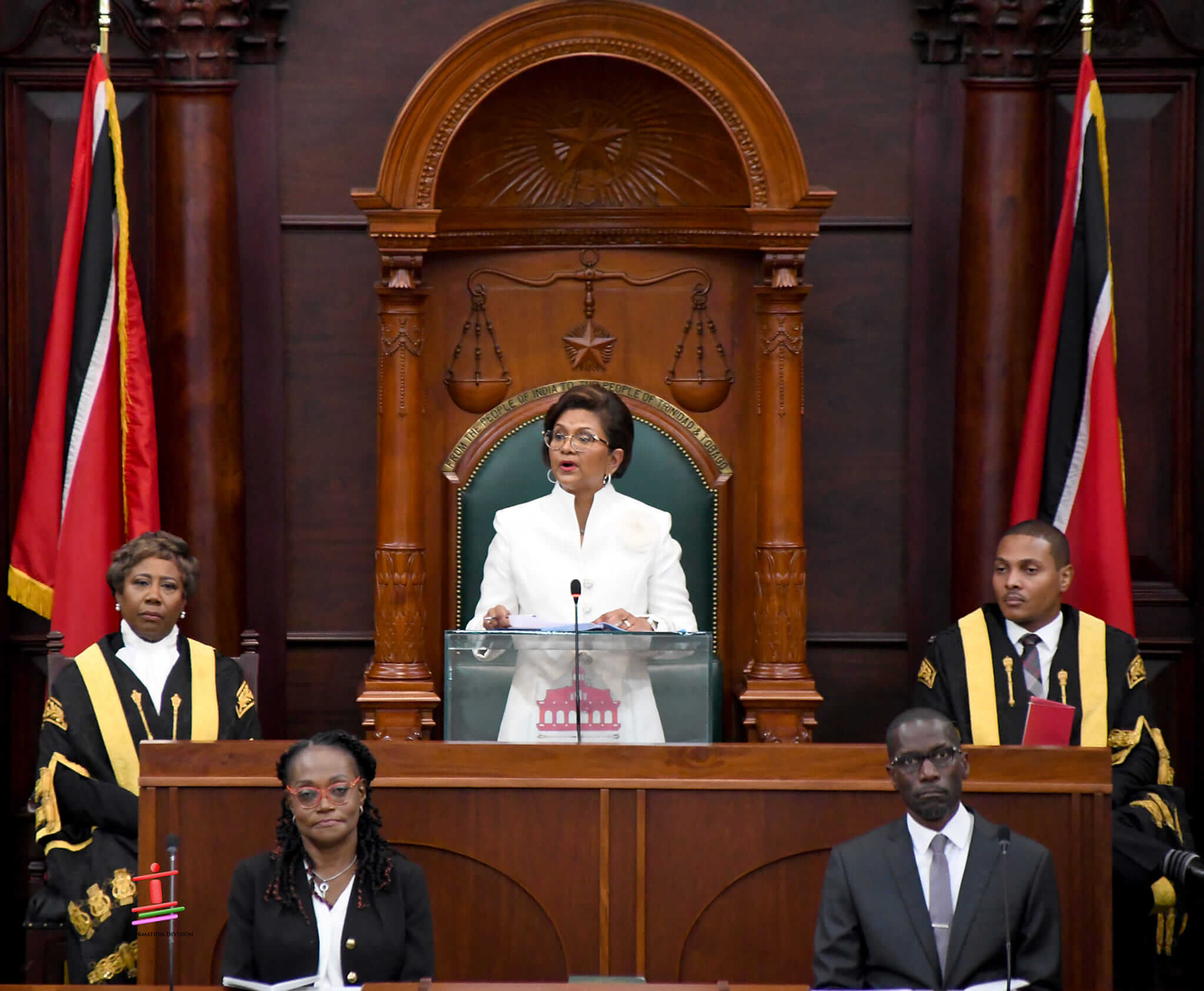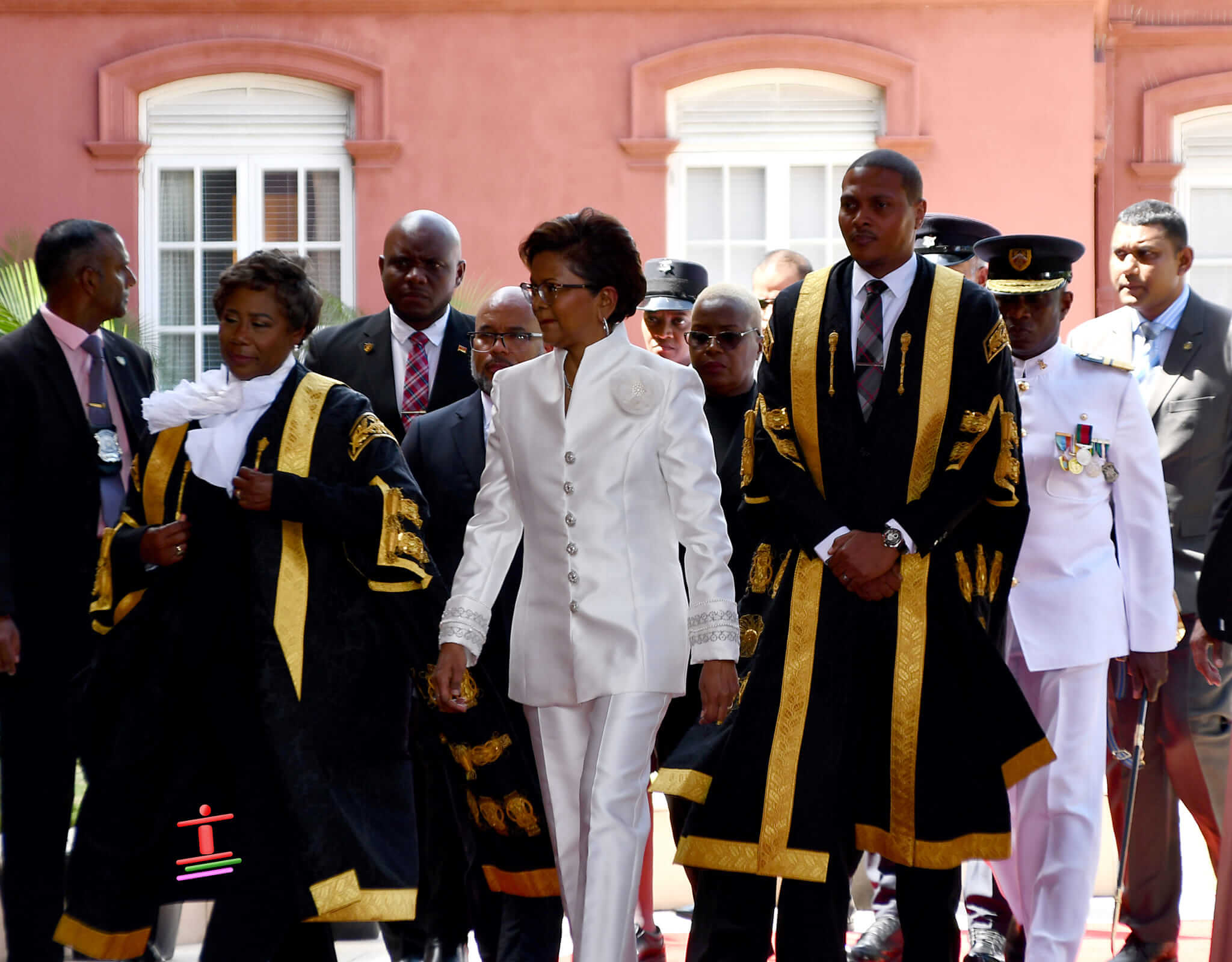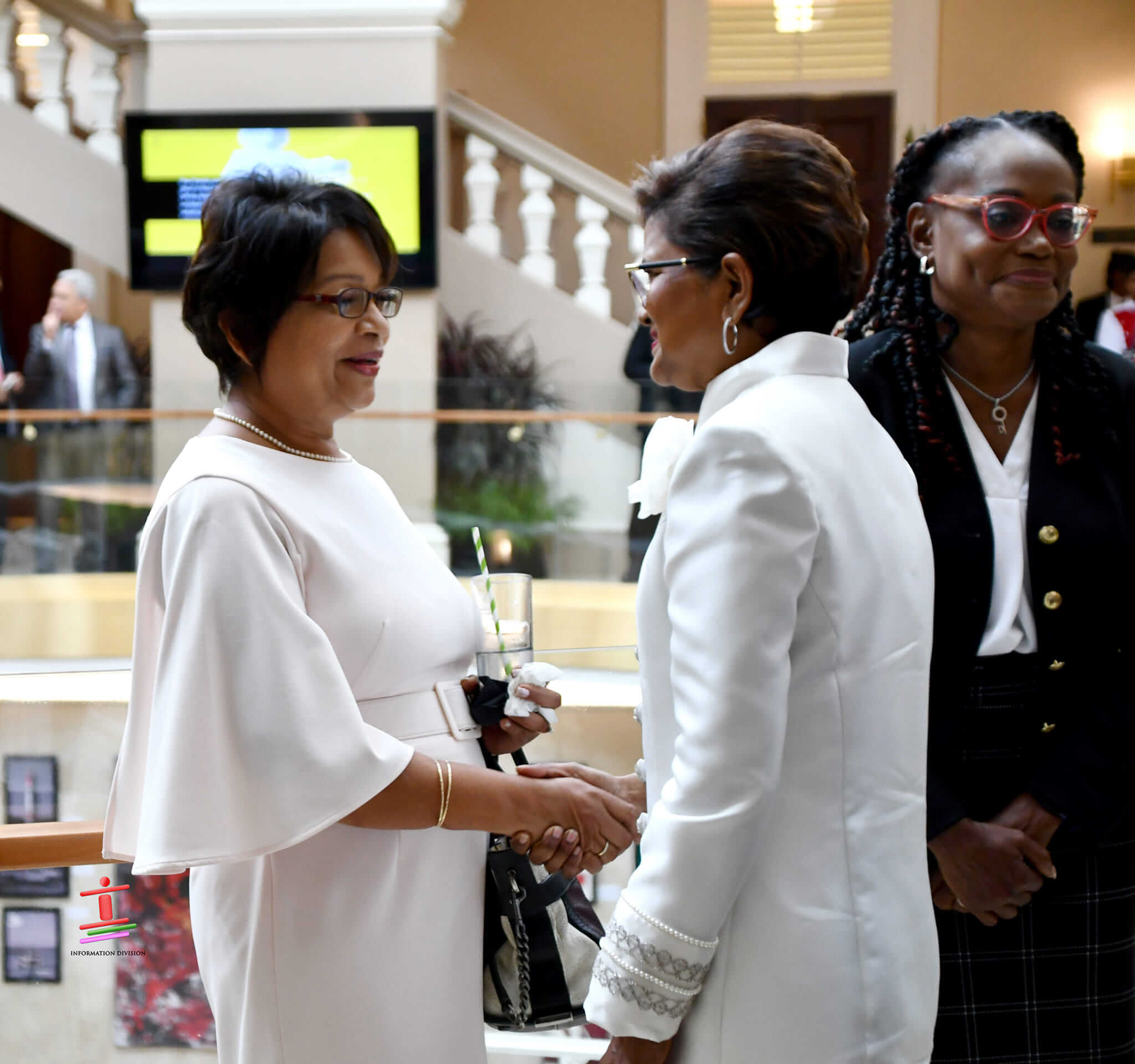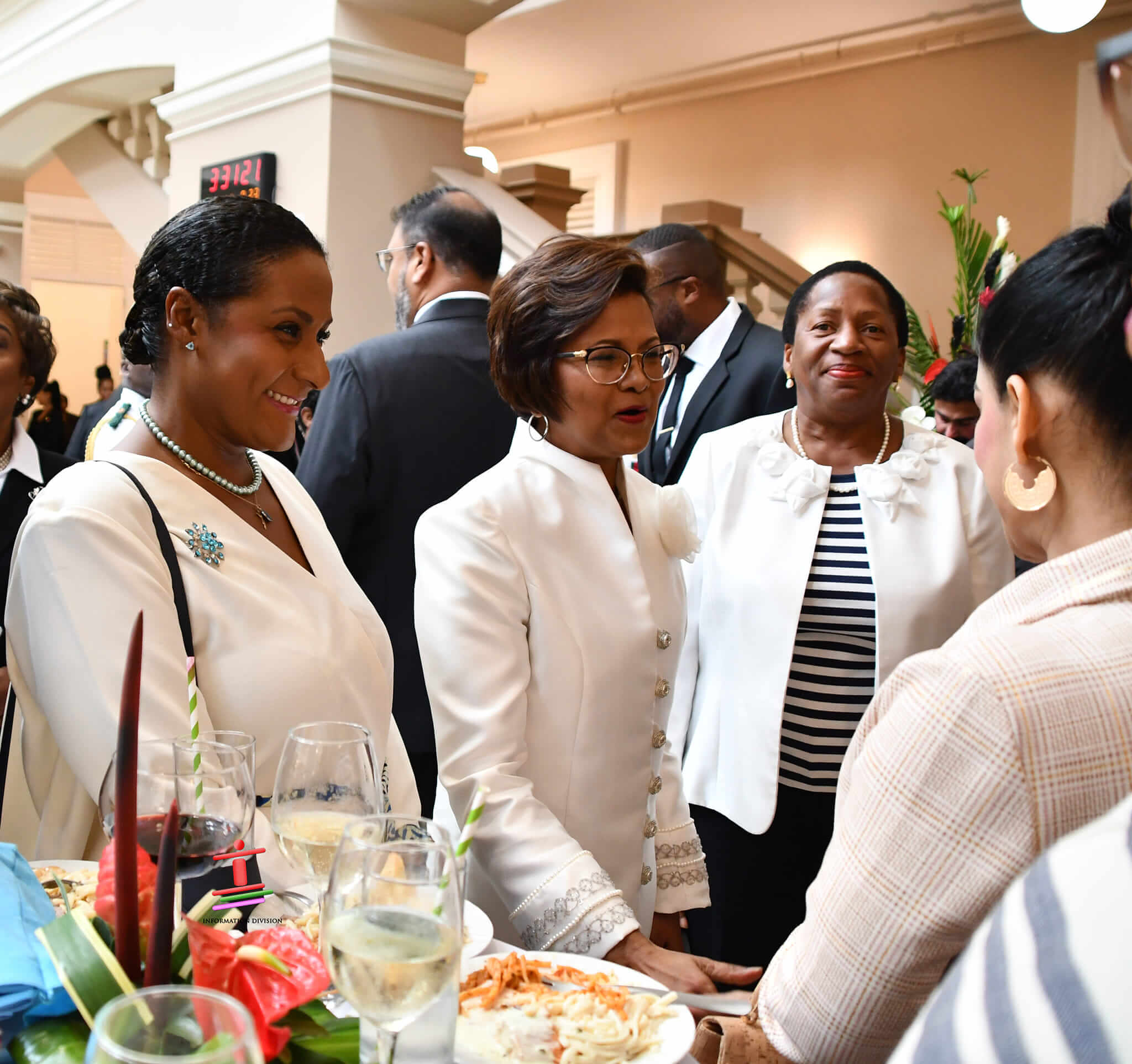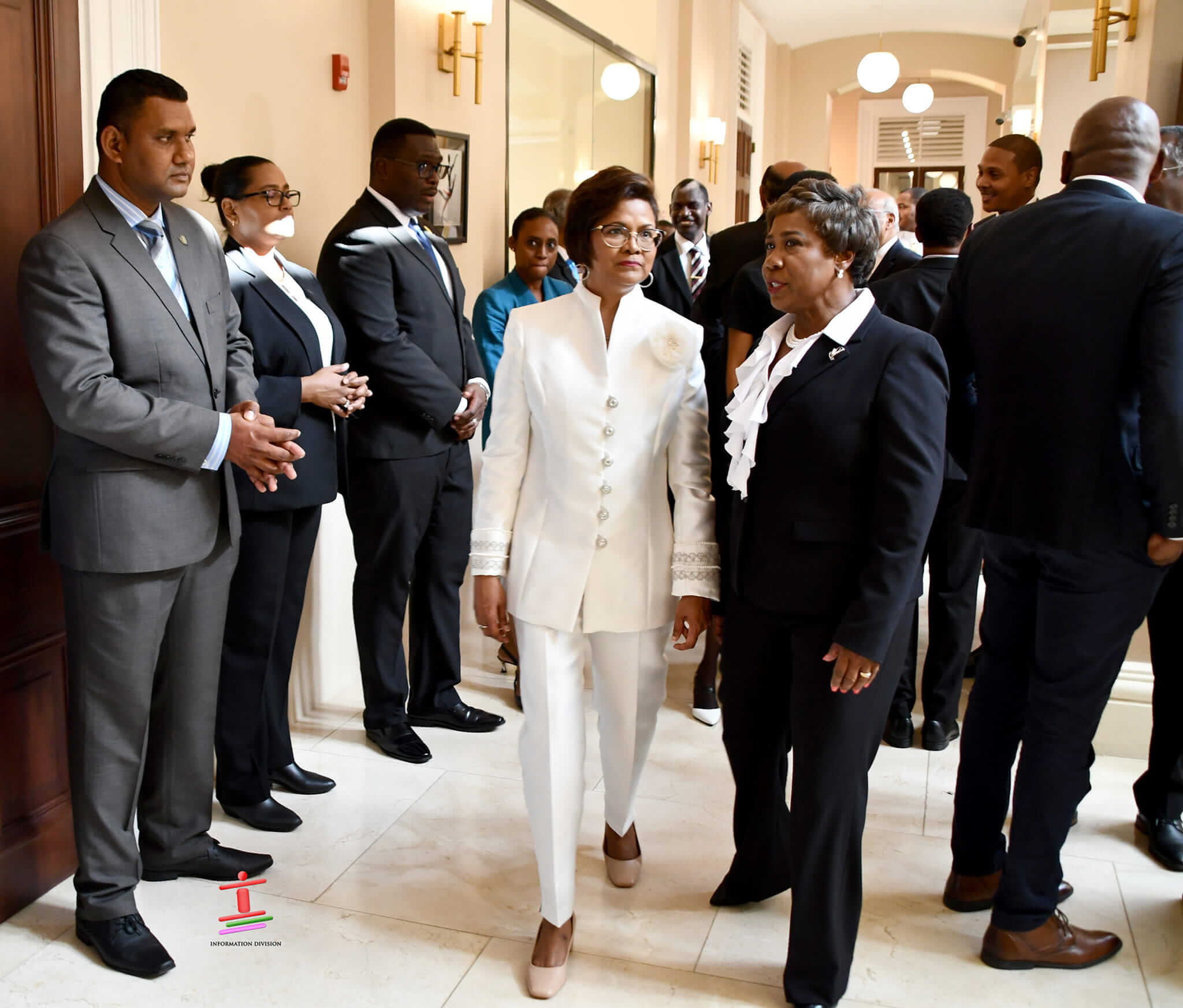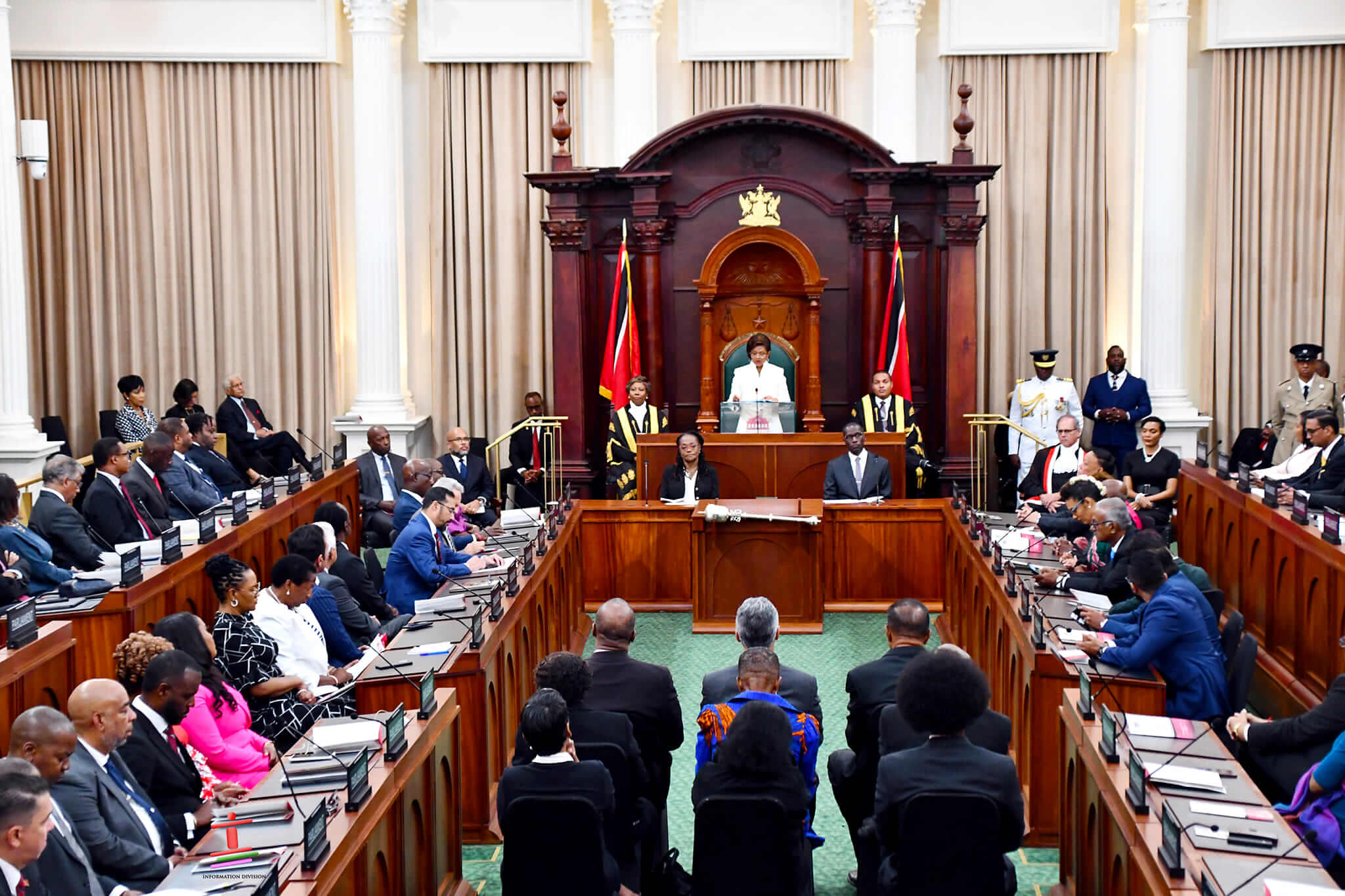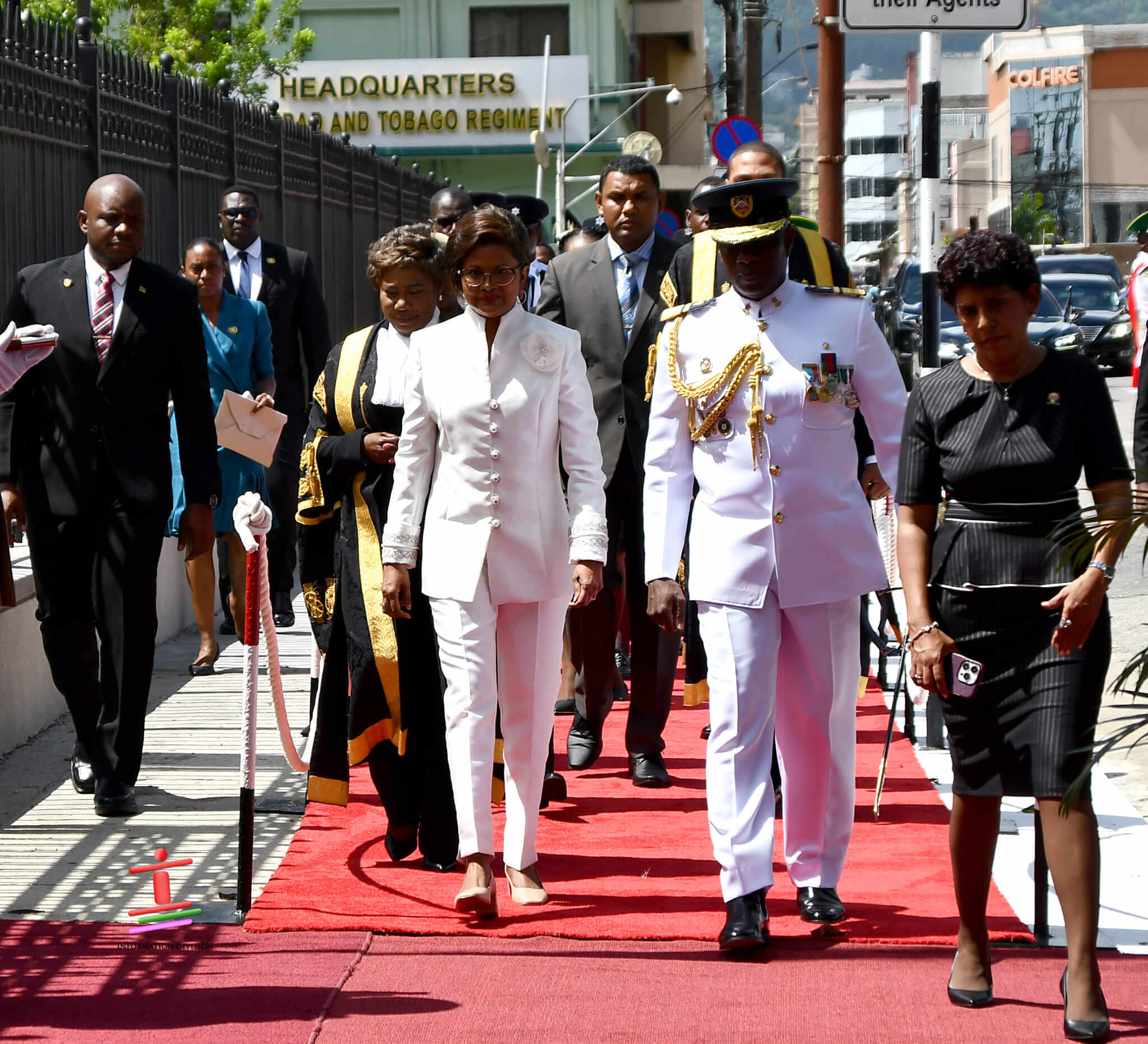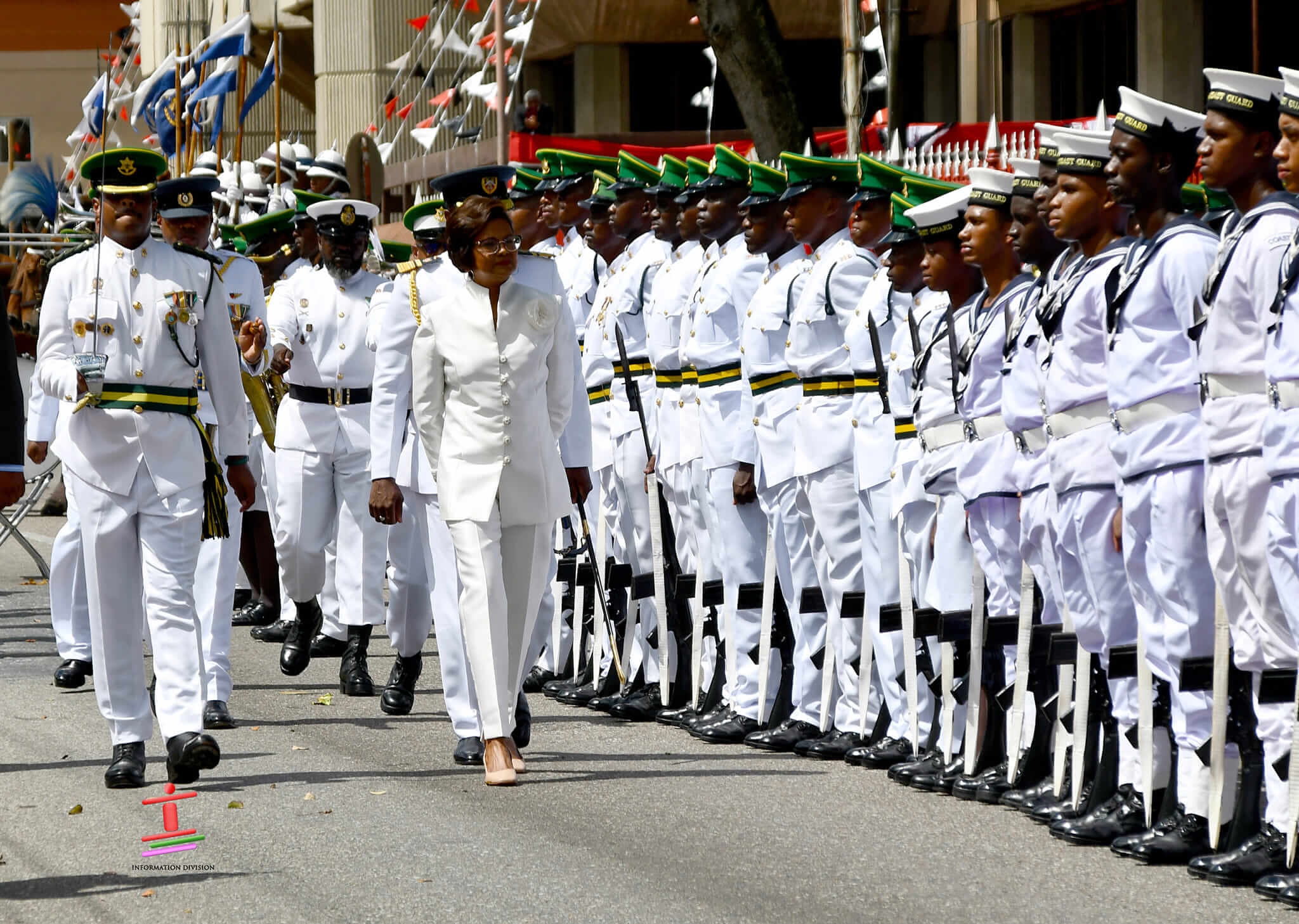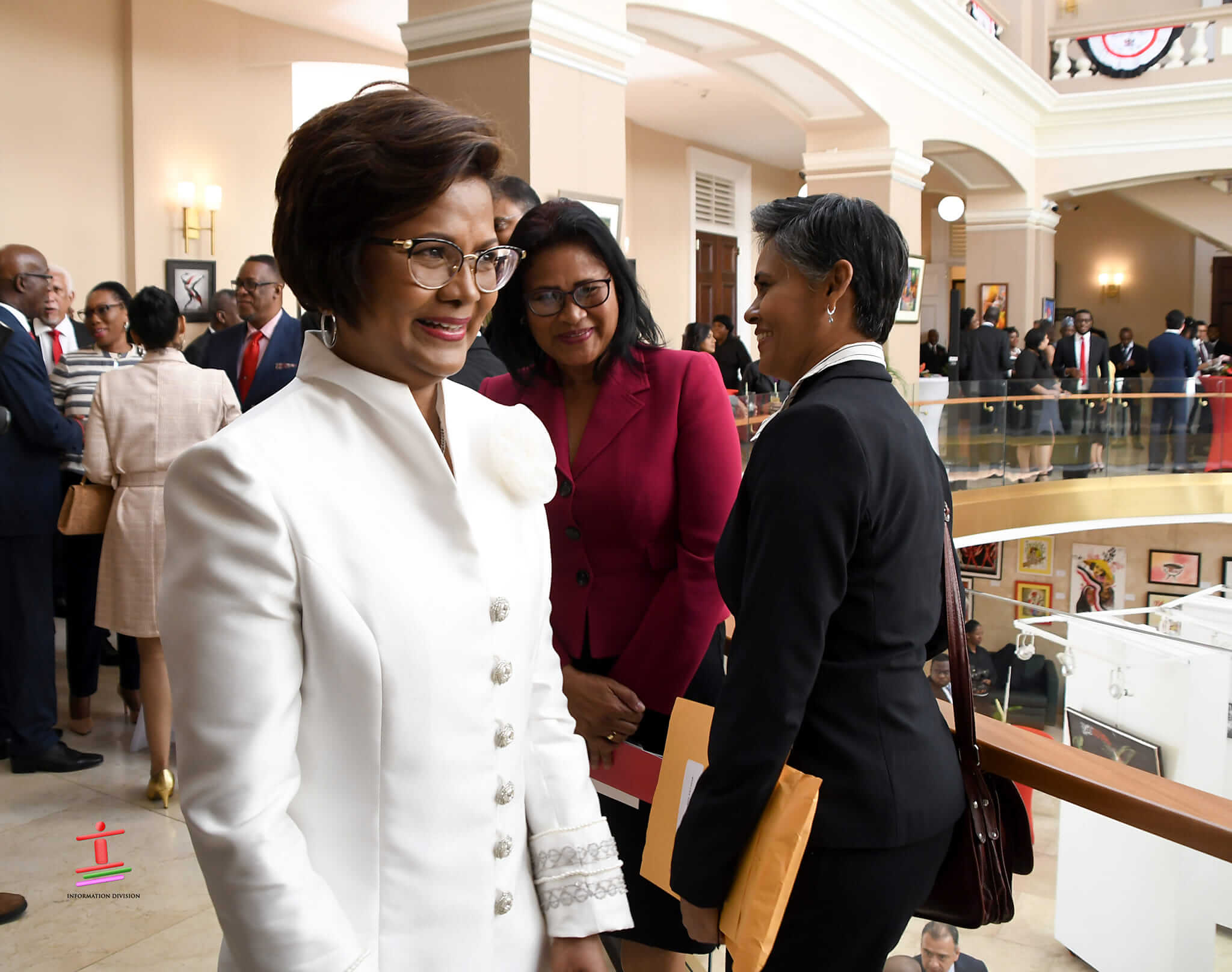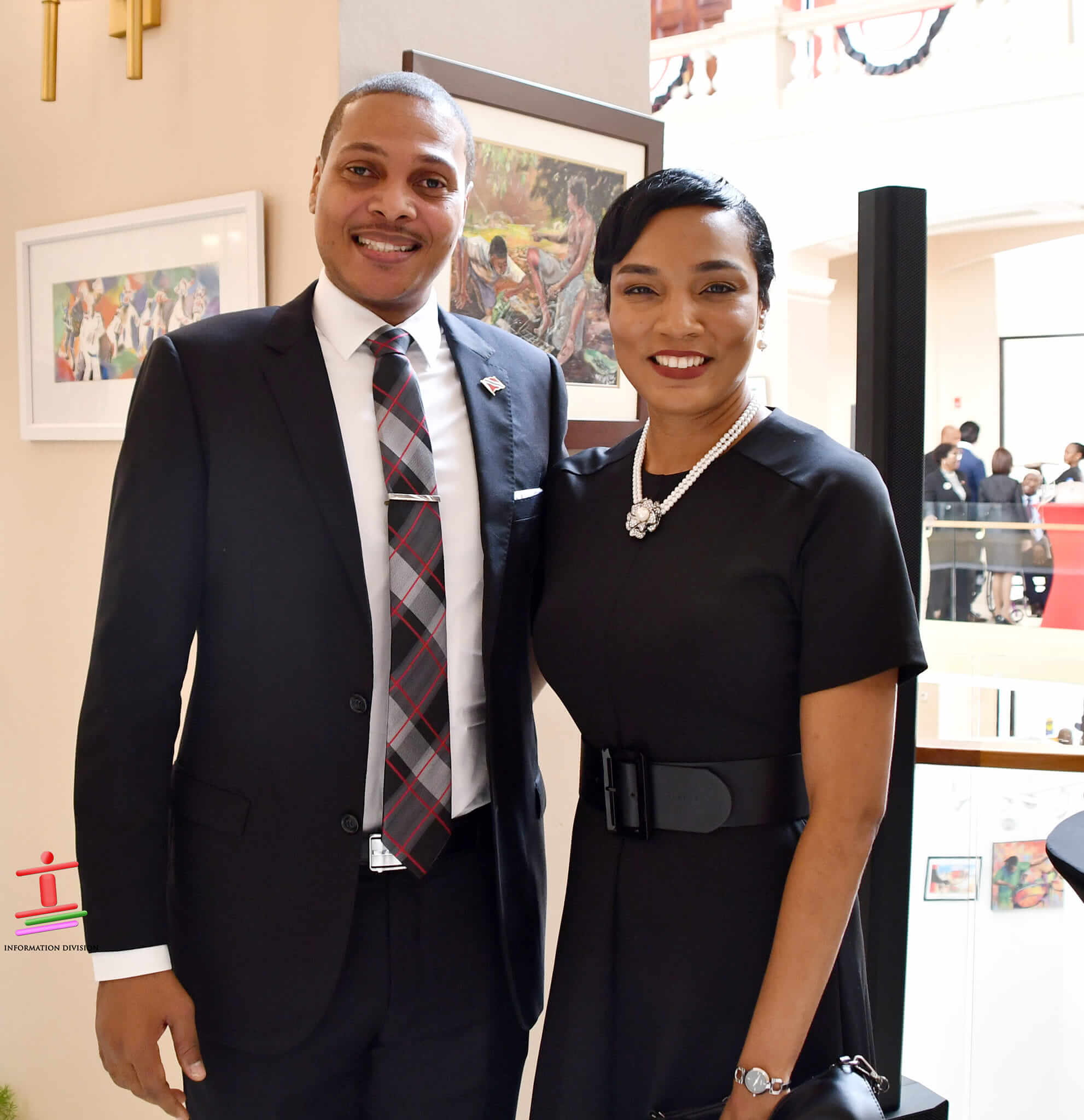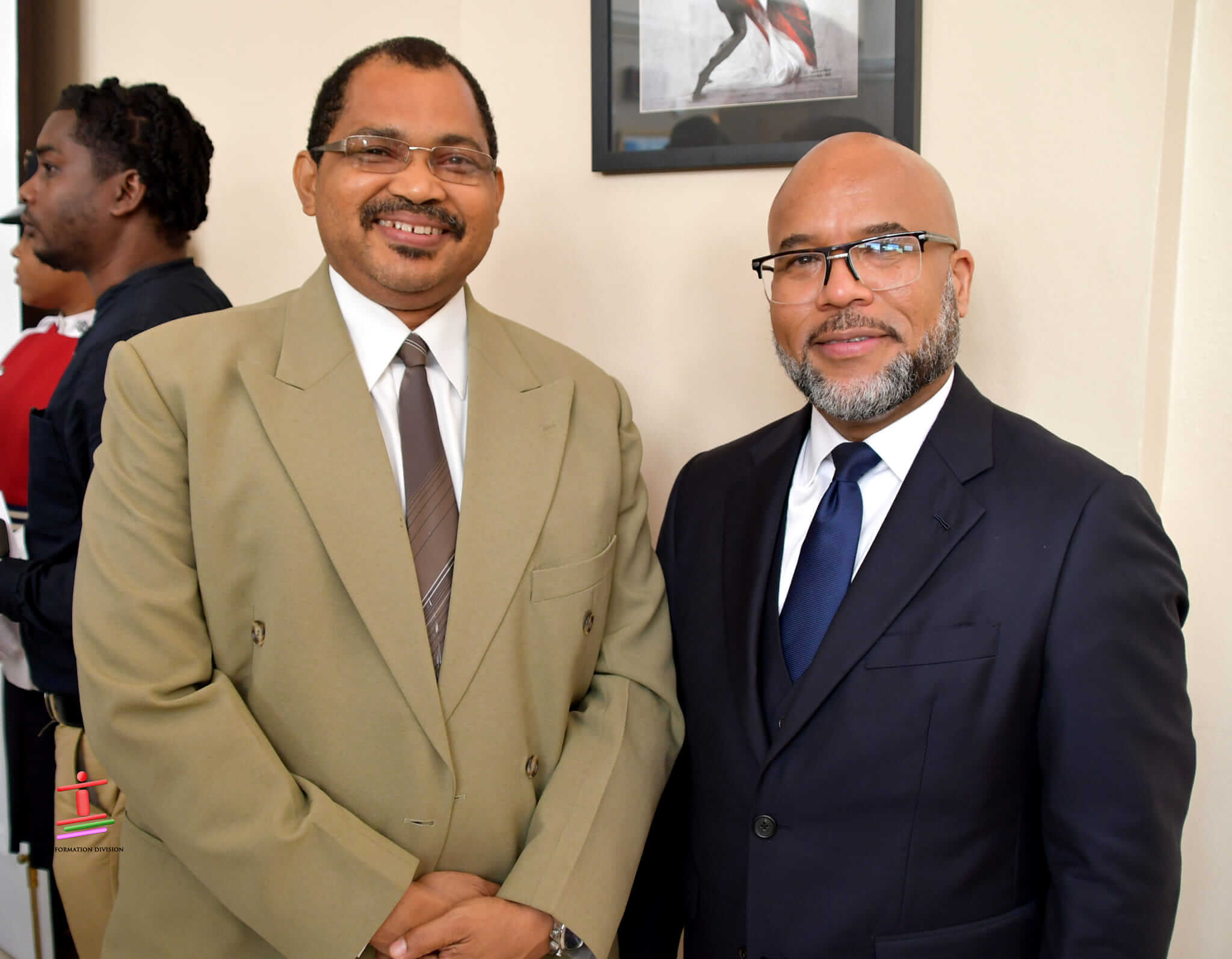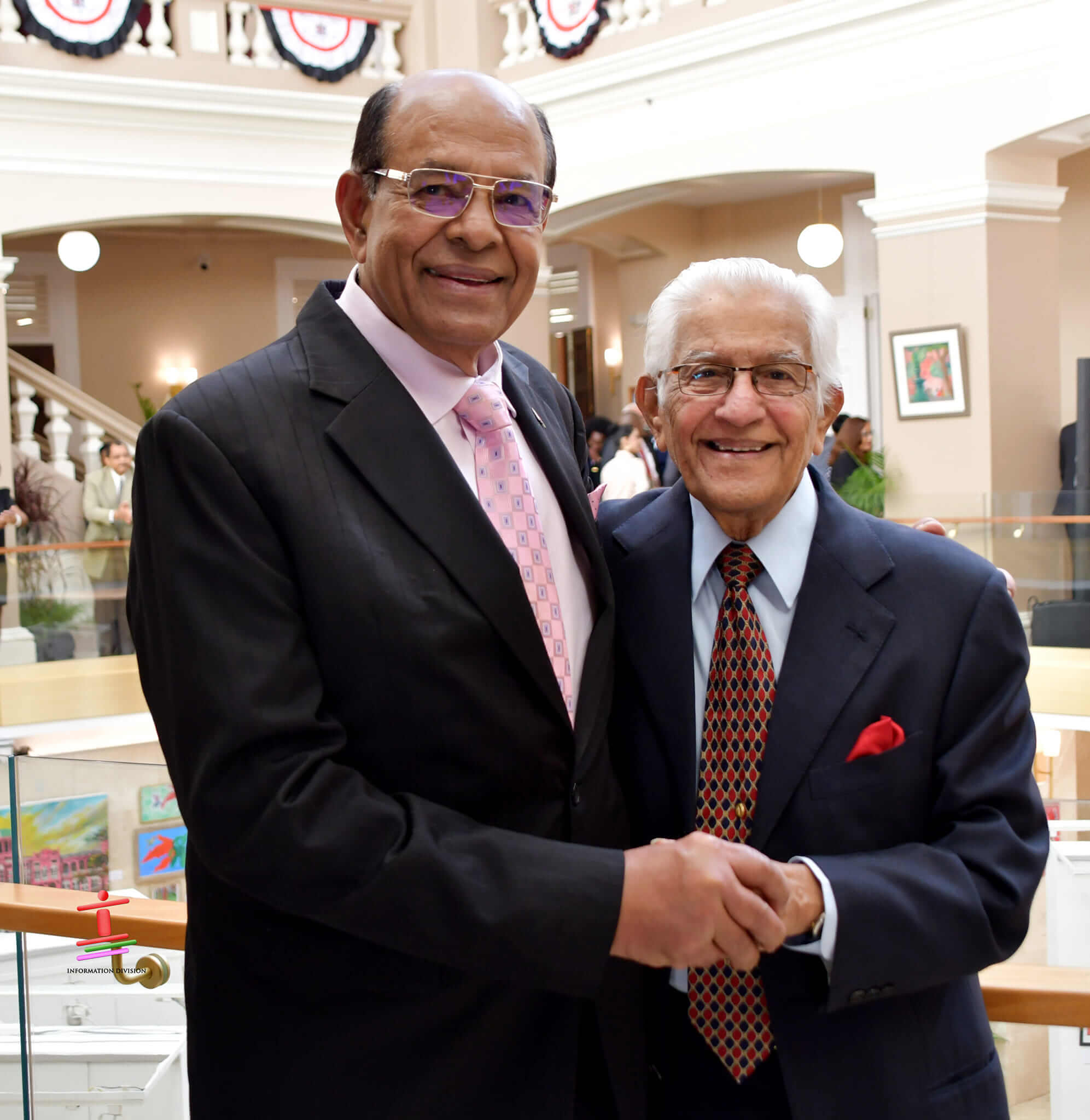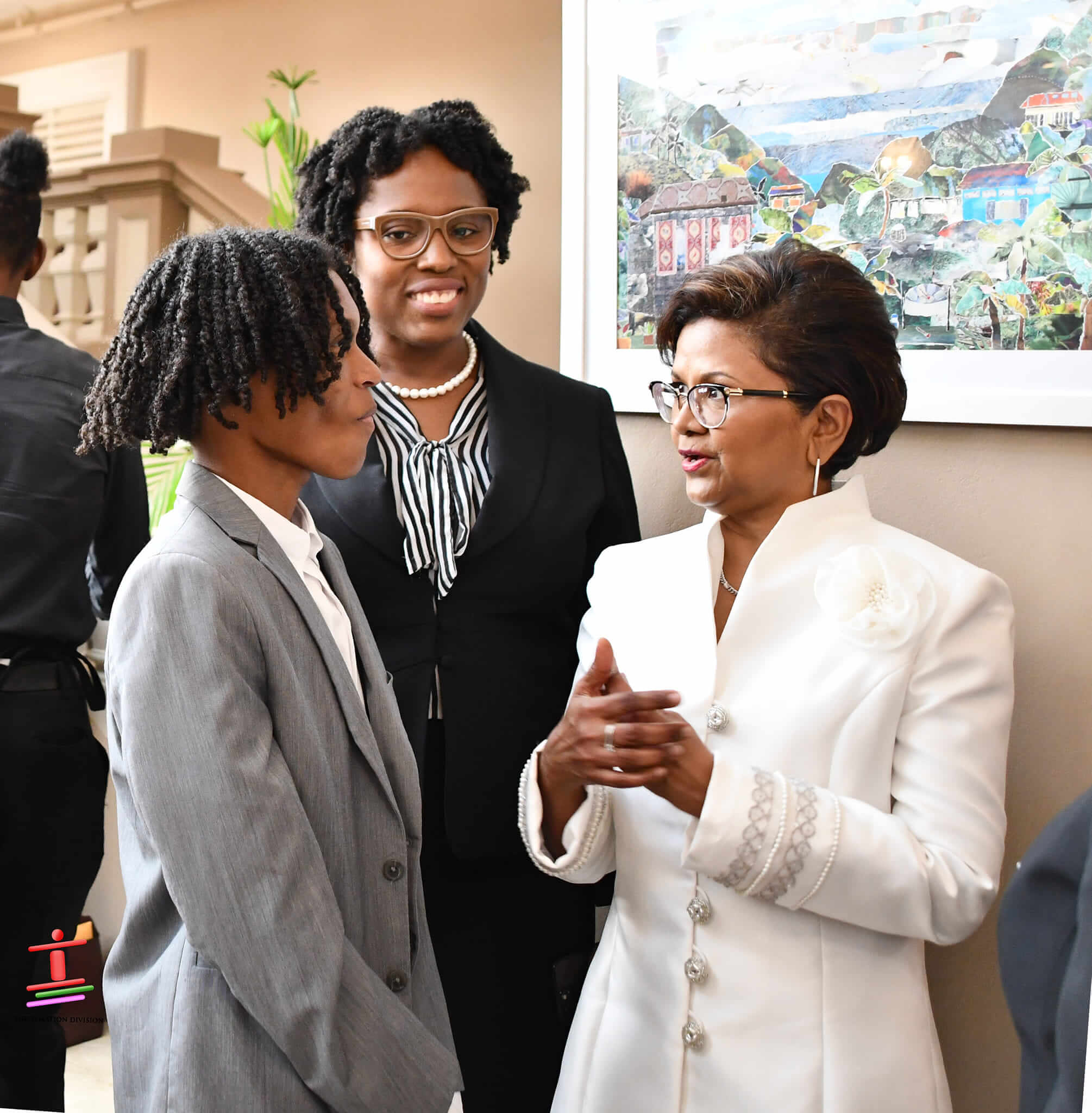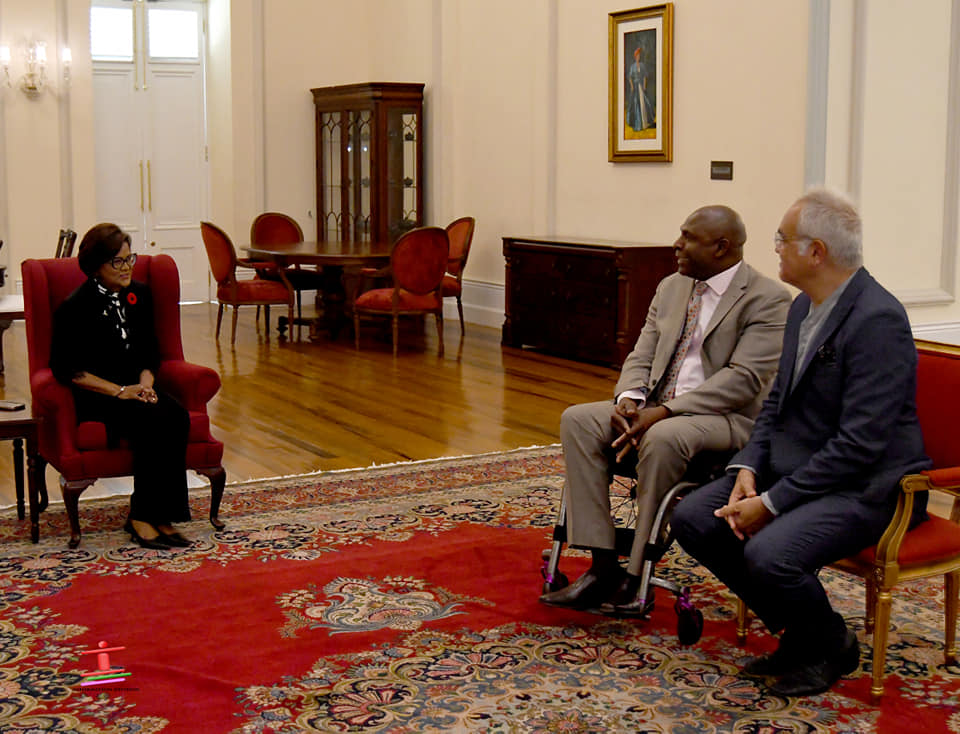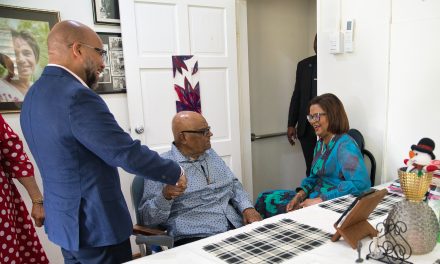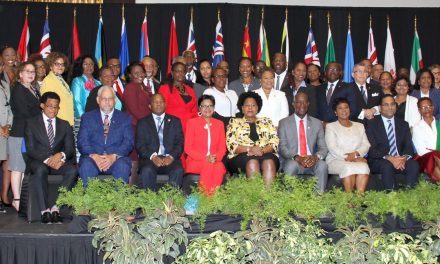Mr. President of the Senate; Madame Speaker of the House; Honourable Members of Parliament…
I would like to begin by thanking Madame Speaker for her kind invitation to address you on this, the occasion of the Ceremonial Opening of the Fourth Session of the 12th Parliament of the Republic of Trinidad and Tobago. I would also like to thank all of you, our nation’s Parliamentarians, for your service in, and to, the Parliament and by extension, the wider society. I especially wish to thank those outgoing members of Parliament who have, for years, served selflessly and diligently in the Senate, as well as those incoming members of Parliament who have answered the call to national service in the Senate for the first time. To all who have ever answered; who are continuing to answer; and who are, for the first time, about to answer the call to Parliamentary service, you have a nation’s thanks.
Like the Presidency, Parliamentary service is often misunderstood. For many of us, the sum of what we understand to be Parliamentary service, is what we see on the Parliament Channel, when we arrive home, tired from work on afternoons, and we look at Parliamentarians debating Bills on Tuesdays (when the Senate usually sits) and on Fridays (when the House of Representatives usually sits). The Parliament Channel has done tremendous work in bringing the business of Parliament to the notice of the public. But, for all of the Parliament Channel’s efforts, and for all of its value, the sittings of Parliament, twice a week, remain all that a significant segment of our society knows about the workings of our Parliament. Given the tremendous scope of work that the Parliament does, this is regrettable.
One of the initiatives to which the Office of the President is committed, is better explaining to the population what the Office of President involves. I respectfully suggest that we, in the Parliament, might also wish to consider showcasing, even more than we are showcasing now, what it is we do, beyond debating Bills. I say “we”, because, by section 39 of the Constitution, there shall be a Parliament of Trinidad and Tobago which shall consist of the President, the Senate and the House of Representatives. So, the President is in fact part of the Parliament. But I also say “we”, because I have been lucky enough in my lifetime to have sat where you are sitting today – on both sides of the floor, at different times, as it turned out; and eventually in the Chair in the Senate. Serving as a Parliamentarian was among the greatest privileges of my life; and I don’t imagine that my heart will ever truly abandon this institution that I have come to admire and to respect.
All of us ‘Parliamentarians’ can be sure, though, that that admiration and respect are not universally felt. This, I believe, is at least partly because the public whom we serve has, for so long, been fed a constant fare of negativity about Parliament. Parliament has certainly been an extremely popular target of critics in recent years. I often wonder whether matters haven’t got to the stage where the population is almost programmed into a certain cynicism about Parliament, and about Parliamentarians. When I sat where you sat, I experienced the effects of this cynicism, firsthand. The year was 2007. I had just been elected to the House of Representatives, as the Member for Pointe-a-Pierre. On a thank-you walkabout in my Constituency, just a few days following the elections, a gentleman complained to me, outside of his gate, that he had not seen me since the elections. Such was the negative programming, that the gentleman’s reasoning could not yield to the fact that there had practically been no time between the elections and my seeing him, to found the basis of any legitimate complaint as to my absence.
Many of you have faced, or will face, similar unjustified, knee-jerk cynicism. This is not to say that some of the cynicism surrounding Parliamentarians has not been earned. Far from it. But, like in the case of that gentleman, one is left to wonder at how much that cynicism is simply an autonomic, and an unfair, reaction to all things (and all persons) having to do with Parliament.
I have gone as far as to say “unfair” because, from my own experience of the institution of Parliament, I can give the population the assurance that there is an enormous amount that our country has to be proud about where our Parliament is concerned. In a society in which we are programmed to believe that “nothing works’, I can tell you that, as an institution, Parliament most certainly does. When, as Senate President, Madame Speaker and I had the privilege of meeting with colleagues throughout the Commonwealth on Parliamentary conferences, our colleagues would often tell us how impressed they were at how efficiently Trinidad and Tobago’s Parliament functions. That, I can assure you, is by no accident. Our Clerks are regularly invited to other jurisdictions as subject-matter experts, to deliver presentations on the working of Parliament’s various Committees and the like. Beyond the customary sittings on the Tuesdays and Fridays, our Parliament is always at work, including by way of its numerous Joint Select Committees.
Let me say a word about these Joint Select Committees. Joint Select Committees provide valuable oversight over Government agencies, and foster public accountability and public engagement. Several recommendations by these Committees have been adopted and implemented. One of the recommendations which has been adopted and implemented during the last Parliamentary Session, was the publication by the Central Bank of the fees charged to the public by Banks, and the fee structure of banks in general in a sample of Caribbean countries. The Parliament Channel carries the sittings of Joint Select Committees, too – but it is only that their sittings are often held during working hours, so that the majority of the working population misses the opportunity to witness them, live.
Even in respect of the more familiar Tuesday and Friday Sittings, Parliament’s staff is always working, including in the way of assisting Members with research on their various presentations. It was by no accident, and it is to our country’s credit, that, during the COVID 19 Pandemic, our Parliament was quickly able to adapt – more quickly than many – and put in place mechanisms and measures that allowed us to continue sitting, safely, throughout the length of the Pandemic.
These matters I have been describing are just some of the operations of Parliament that are perhaps not as well-known or as appreciated as they should be. And it is, I think, this lack of appreciation of all that our Parliament really does, that allows the cynicism in our society about the institution, to rear its head and to fester. While others, on the outside, see and value the work and the worth of our Parliament, here at home, our Parliament is sometimes cast in the role of the biblical prophet, who is not without honour, but in his own country, and among his own kin, and in his own house.
Moving away from Parliament as an institution for a moment, permit me to venture into potentially even less popular waters, and to say that there is also an enormous amount in terms of the sacrifices and the stresses that Parliamentarians undergo, that our country can, and should, be grateful for. I appreciate that this sentiment is probably less palatable than anything that I have said thus far. But that doesn’t make it any less true. As I have said, some of the cynicism surrounding Parliamentarians has certainly been earned. We do not always conduct ourselves in accordance with the Standing Orders of the House or of the Senate. Truthfully, sometimes we go too far and descend to depths of which we should be ashamed. But, equally truthfully, the work that Parliamentarians – particularly elected Parliamentarians – do, is fundamental to the well-being of our society. And that kind of work is, I fear, also under-appreciated.
Many elected Parliamentarians have had similar experiences to the one that I had, when, as the Member for Pointe-a-Pierre, just as the Constituency Office doors were being closed late one evening, a young mother appeared. She was heavily pregnant – so pregnant that I was genuinely fearful that she might actually give birth right then and there in the Constituency Office, casting me into the role of midwife for the first time in my life – and her landlord had just evicted her for not paying the rent that she simply could not afford to pay. It fell upon me then to work out a solution for her and her children (both alive and unborn), at that hour of the night. Elected MPs face and have to deal with these, and sadly, far worse situations, sometimes many times in the course of the same day. People in need sometimes expect their elected MPs to pay their grocery bills; buy schoolbooks for their children; and take on the role of plumbers when pipes in their homes burst. Many elected MPs actually do these things. Yet, far from being appreciated for their efforts, elected MPs are often ridiculed just for drawing a salary. I recall when a colleague from the Opposition related to me the story of his leaving the supermarket after having made groceries at month-end, and being accused by a Constituent of having the Government pay for his groceries. There is often a mistaken belief that the State pays for everything where an MP is concerned; or, even worse, that MPs do not earn their keep and have no right to a salary, like everybody else.
Truthfully, there is no salary scale that can begin to compensate a Member for the emotional and the mental stress that are routinely undergone when he or she tries to do his or her best to serve at the Constituency level. When the responsibilities of debating Bills, participating in Joint Select Committees and sitting as Cabinet Ministers, are superimposed upon those of servicing one’s Constituency, and are mixed in with a dismissive cynicism of even one’s very best efforts, it is a wonder that anybody offers himself for national service by way of Parliamentary duty, at all. This is why I began this address by thanking all who have ever answered the call to Parliamentary service. Until you have tried it on for size, it is far too easy to be cynical about what Parliamentarians do and the sacrifices they are called upon to make.
I appreciate that I might well be criticized for mounting what might be construed as this robust defence of Parliamentarians. I am not fearful of that. What I am fearful about, is us devolving into a society where cynicism and criticism are our default attitudes about institutions and people who, as flawed as they are, are only there to try to help make our lives better. I believe that it is only when we come to understand the full scale of what elected MPs do, and have to face, that we will be able properly to hold them to account. I am not for one moment advocating a disregard of those voices that rightly speak out against the abuses suffered at the hands of some errant Parliamentarians. Rather, I am advocating that due and proper consideration should be given to the value and the importance of the roles Parliamentarians play when, more often than they are given credit for, they try to, and actually do get things right.
My hope is that in this Fourth Session of the 12th Parliament of the Republic of Trinidad and Tobago, Parliament will continue further along the road of getting things right. There are a number of areas on which I hope Parliament might see it fit to focus during this upcoming Session – areas of focus which I hope Parliament will agree can help Trinidad and Tobago to get things right. Permit me to list just five (5) of them.
First, I hope that there can be greater collaboration across the aisle – particularly where legislative and other measures designed to help us fight crime, are concerned. The urgency is obvious. The pain and the suffering are unbearable. These alone should drive Parliamentarians to put aside their party rivalries, join hands across the aisle, and collaborate on how to stem crime and criminal conduct. I appreciate that some will say (as Samuel Johnson once famously said) that that, like a second marriage, is the triumph of hope over experience. But I prefer to associate myself with the more uplifting philosophy contained in Alexander Pope’s equally famous statement, that ‘hope springs eternal in the human breast’.
Second, my hope is that Parliament will, in that vein, pull together to enact laws that are even more reflective of our society’s goals and vision – including in relation to legislation that both protects and advances culture and the arts. In particular, I hope that it will be seen fit for there to be an urgent Parliamentary intervention that results, at long last, in the steelpan being firmly and irrevocably declared our national instrument. Those in the industry will tell you that giving the steelpan formal and official ‘national instrument’ status, is critical to opening doors for the industry in international markets. The General Assembly of the United Nations has formally recognized the universal value and significance of the steelpan. I believe that it is high time that we formally do the same.
Third, I hope that we will see the appearance of additional legislation that helps us further entrench our country’s place in the modern age – including in areas such as persons with disabilities. More than 20 years ago, when I held my very first Cabinet position as Minister with Responsibility for Social Services Delivery, it became clear, from the many protests that were held at that time, that it was urgent for more attention to be paid to the needs and the rights of persons with disabilities. Over the years since then, there has been a great deal of consultation over a Persons With Disabilities Act. It is my hope that these consultations will bear fruit during the life of this Parliamentary Session, and that this country will have legislation that better protects and promotes the rights of persons with disabilities. If we are to become a developed country, we need to have laws that create a more inclusive society.
In terms of legislation that further entrenches us in the modern age, my hope is for a Parliament that is bold in its legislative agenda. I hope that this Session’s agenda will be as forward-looking as practicable, and will include legislation that treats, at one and the same time, with the awesome potential and the looming threats of Artificial Intelligence. I hope, as well, that consideration will be given to treating legislatively with the new realities in the post-Pandemic world of work, such as ‘Working From Home’ and ‘Hybrid Work’. These are not merely passing ‘fads’, which have gone the way of the Pandemic – they are what our younger generation is demanding from us, as they insist upon their right to a higher-quality work-experience.
Fourth, I hope that Parliament will give consideration to reviewing its Standing Orders to create a committee like the Public Bill Committee in the United Kingdom, which is a committee of the United Kingdom’s Parliament set up to examine the details of particular Bills and report thereon to the Parliament. In our Parliament, the experience has been (at least when I was there) that it is a struggle – often a vain one – to try to get through the entire Parliamentary agenda in any one Session. A single sitting of each House, once a week, dealing with one Bill at a time, is not likely to result in all of the business of each House being completed in any given Session. Adopting the model of a Public Bill Committee is likely to prove a far more efficient way of bringing legislation to the floor, and actually getting it passed, before the clock runs down on a Session. Using a Public Bill Committee to undertake more in-depth studies of proposed legislation, will save time on the Parliamentary floor consumed by clause-by-clause debating, and will allow Parliamentarians to spend more time treating with wider issues of policy. I am aware that this suggestion has implications for whether we ought, or ought not, to have a system of full-time Parliamentarians; and that that idea has, in turn, financial and other implications. But there is so much work to be done, that I fear that unless some creative and different way is found to enable us to get through, and then add to, our Parliamentary agenda, we will forever be playing catch up.
Fifth, and importantly, I hope that Parliament will see it fit to develop an annual timetable or fixed agenda, which will serve to promote certainty and efficiency by allowing, among other things, for better planning. The Parliament of Ontario, in Canada, has, for example, developed an annual agenda, which our Parliament can perhaps consider using as a prototype.
These are just some of my hopes for this next session of Parliament. I offer them, not as directives (which, of course, I have no power to issue), but for consideration as potential targets (which it is, I think, my duty to help identify). It has been my privilege to have been able to share them with you.
I end now, as I began, by thanking you – this time, for listening to me. When next we meet, I hope that I will be able to thank you, not just for listening to me, but for having heard me. I hope that, at that time, we will be able to say that we are further along in building a Parliament that is better understood and better valued. I hope that we will be able to say that we have made greater progress in fostering a better understanding of the demanding roles that our Parliamentarians play. And, armed with that better understanding, I hope that we will be able to say that we held them to greater account. I hope that we will be able to say that we have advanced even further in creating a Parliament that collaborates, legislates and acts, boldly and decisively, in essential areas of our national life, and that is even more efficient than undoubtedly it already is. In short, I hope that, when next we meet, we can share reports of a Parliament and a society that continue to work hand in hand to create a better Trinidad and Tobago.
May God bless you all. And may God bless our nation.
